Operating a fleet of over 700 buses on 85 routes with thousands of stops, the Tri-County Metropolitan Transportation District of Oregon (TriMet) serves citizens across more than 500 square miles. With a Digi cellular router — orchestrated and managed by Digi Remote Manager® — installed on each bus, TriMet leverages real-time computer-aided dispatch, automated vehicle location, and electronic fare connection as well as support for its award-winning Transit Signal Priority initiative.
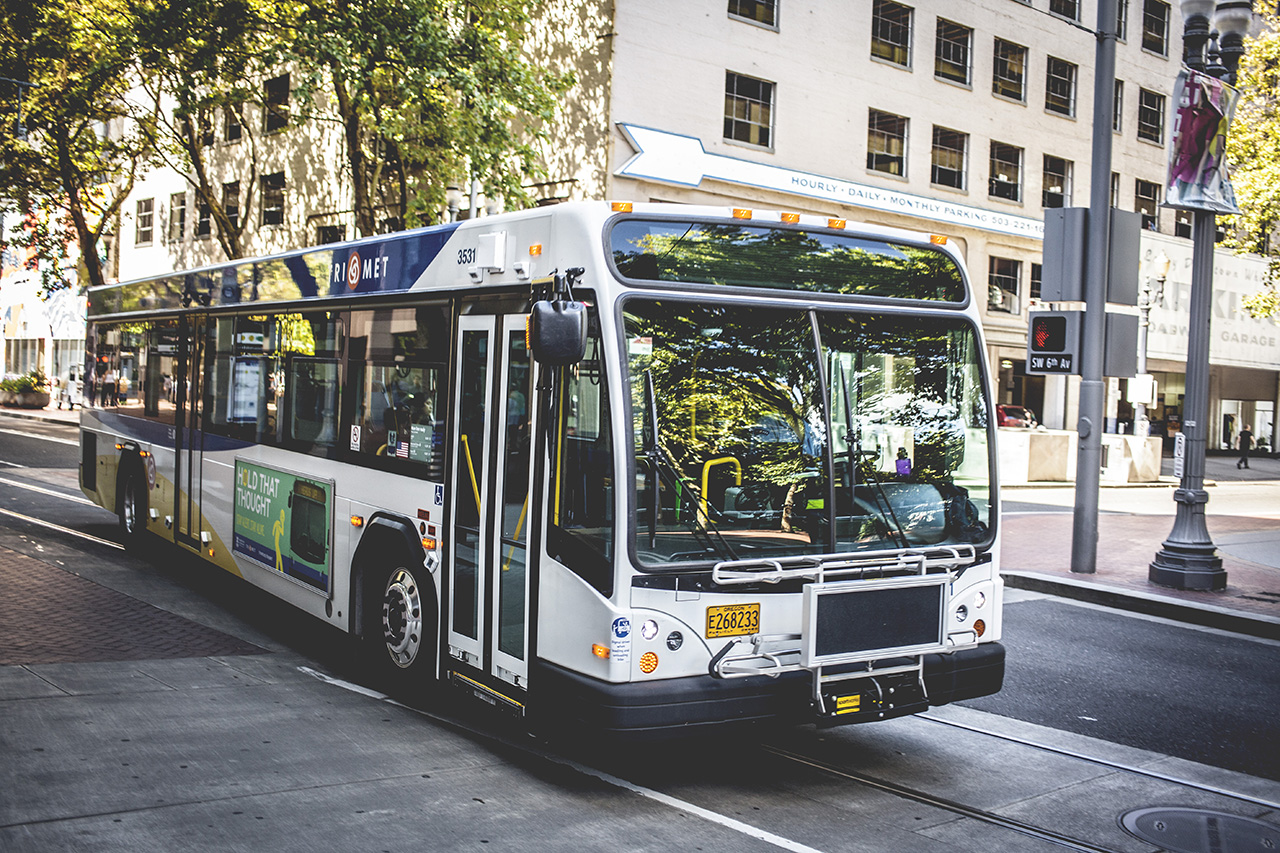
Meeting the Post-Pandemic Challenge in Mass Transit
Like every transit authority around the world, TriMet saw the COVID-19 pandemic bring significant changes in how and where people engage with mass transit. Now, as stores, workplaces, and the arts reemerge, ridership continues to steadily increase. TriMet is also eyeing a 30% expansion, driven by changes and improvements that will help more people reach more places with increased bus frequency, new and extended routes, and a commitment to reliable service.
 That strategy depends, in large part, on a solid communications infrastructure in its vehicles to improve schedule performance, support electronic fare collection, track — and share — bus locations, security video, and more. However, outdated components (some extending back 10-15 years) meant TriMet faced a significant upgrade across its entire bus fleet.
That strategy depends, in large part, on a solid communications infrastructure in its vehicles to improve schedule performance, support electronic fare collection, track — and share — bus locations, security video, and more. However, outdated components (some extending back 10-15 years) meant TriMet faced a significant upgrade across its entire bus fleet.
“Our mobile access routers on our vehicles had served us well, but they were well out of date and had a higher failure rate,” said Evan Yand, senior vehicle systems engineer at TriMet. “We wanted new functionality for things like electronic fare collection and passenger counts. We wanted to publish real-time scheduling data with vehicle locations. And we wanted to work with a vendor that specializes in transit technology.”
TriMet also mapped out a new project using Transit Signal Priority (TSP) to accelerate routes, optimize bus routing, expand capacity, and improve the rider experience along its crucial 15-mile Division Street thoroughfare. Connectivity would be critical to its success. In addition to increasing efficiency, TSP also offers environmental benefits. The transportation sector accounts for about 29% of all U.S. greenhouse gas emissions — more than any other sector. TSP can reduce those emissions by 14%. In a large city, that translates into the prevention of hundreds of thousands of tons of CO2 emissions. Shaving just one second of delay per vehicle-intersection stoppage on a nationwide basis would eliminate more than 1.5 million metric tons of CO2 emissions.
“We are excited to play a role in Oregon’s commitment to carbon reduction with this initiative. With fewer buses idling at traffic signals over the course of a year, we can expect to reduce carbon emissions by many metric tons, resulting in a massive reduction in environmental impact and improved air quality. This is the sort of thing that the smart cities movement is all about.”
Durability, Performance, and Customizability
Working in consultation with the Technology Integration Group (TIG), A Converge Company, TriMet began an in-depth evaluation of next-generation mobile access routers, seeking a solution with modern features, failover redundancy, and remote manageability. Their choice: the Digi TX64 transportation router, a high-performance solution with dual redundant communications. The consulting group supported the installation of Digi TX64 cellular routers on more than 700 TriMet buses, giving each vehicle dual-mode cellular connections and Wi-Fi capabilities.
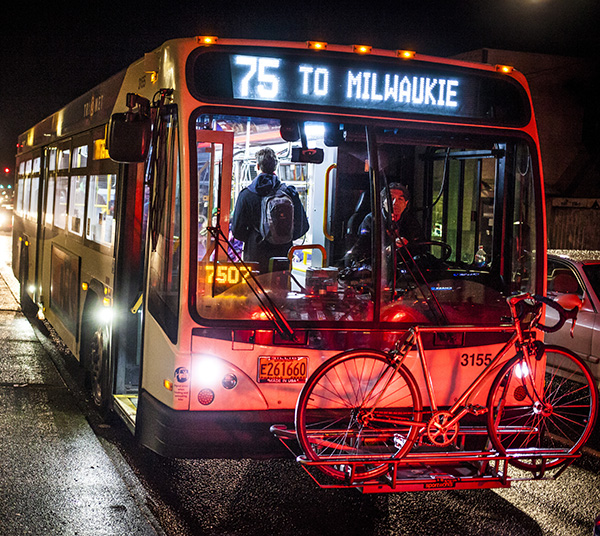 Ideal for challenging transportation and mobile environments, this 5G and 4G LTE-Advanced Pro cellular router provides enterprise-class routing, security, firewall, and integrated VPN. It offers a flexible interface design with an integrated Wi-Fi access point, USB connectivity, serial and 4-port Gigabit Ethernet switch, as well as a variety of configuration options including dead reckoning GNSS and Bluetooth®. Dual cellular and dual Wi-Fi modules provide segmented traffic flow of private and public data for fare collection, CAD/AVL data, camera log backhaul and passenger Wi-Fi access. Additional features, like WAN bonding and mobile VPN, support connection speed, reliability and security.
Ideal for challenging transportation and mobile environments, this 5G and 4G LTE-Advanced Pro cellular router provides enterprise-class routing, security, firewall, and integrated VPN. It offers a flexible interface design with an integrated Wi-Fi access point, USB connectivity, serial and 4-port Gigabit Ethernet switch, as well as a variety of configuration options including dead reckoning GNSS and Bluetooth®. Dual cellular and dual Wi-Fi modules provide segmented traffic flow of private and public data for fare collection, CAD/AVL data, camera log backhaul and passenger Wi-Fi access. Additional features, like WAN bonding and mobile VPN, support connection speed, reliability and security.
Equally important to TriMet was the ability to manage its routers with best-in-class monitoring and management to scale the deployment across its bus fleet. With Digi Remote Manager®, the agency uses a single, secure platform to access data and manage its TX64 devices from anywhere. Simple, secure control lets them edit configurations; update firmware; and monitor, schedule, and automate tasks — all from a desktop or tablet.
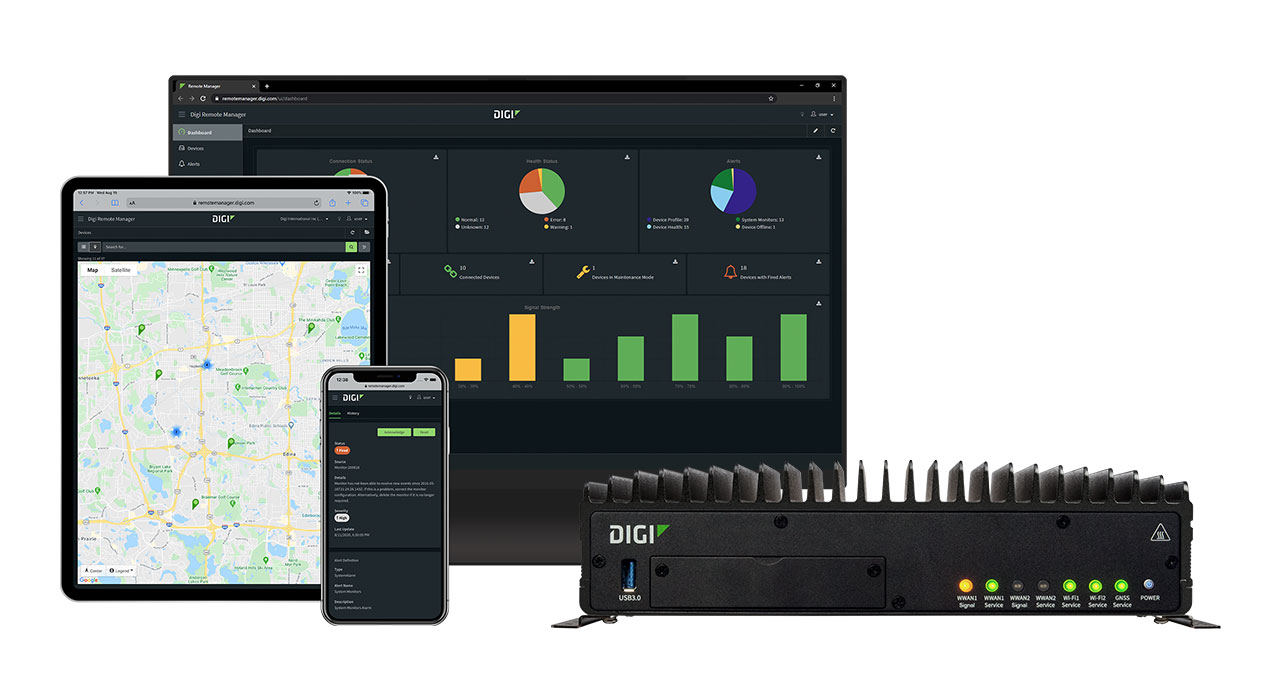
“Digi TX64 is the ideal choice for TriMet,” said Yand, “because of its durability, performance, and customizability. We love that we can customize the router through Digi Advanced Linux and custom Python apps to integrate it easily with our CAD/AVL, and other vehicle-based systems. Digi Remote Manager was another major reason for our choice, since we can manage device configurations on across TriMet’s vehicle fleet from a single pane of glass.
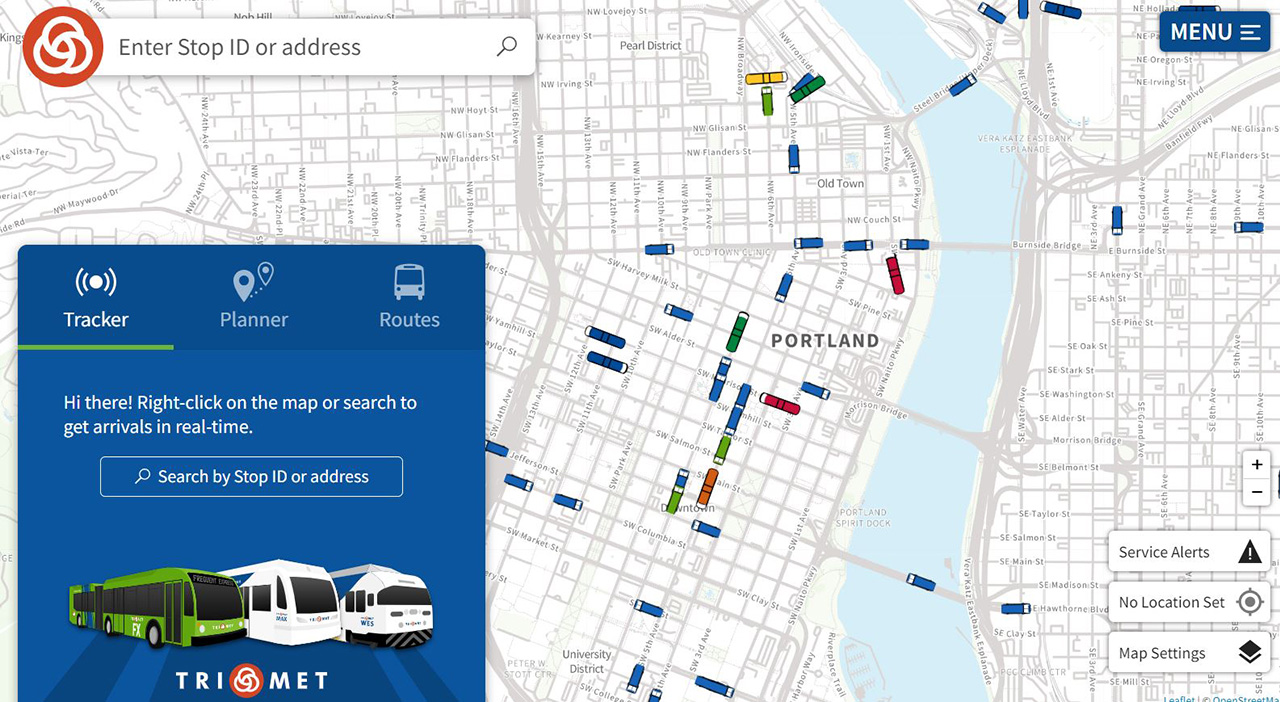
“But perhaps the biggest reason of all was that Digi was more prepared to respond to our needs. We wanted a product with a long lifecycle, one that can support the newest and emerging standards so that we can do more sophisticated things with our vehicle technology. We knew we could have a successful long-term relationship with Digi.”
Transforming the Passenger Experience
TIG, A Converge Company, was brought in to act as the “General Contractor” for the TriMet bus fleet router update project, providing technical oversight and project management to the effort, as well as sourcing the customer-selected Digi routers and Mobile Mark antennas used with the bus retrofit project. They also contracted with and helped coordinate the installation efforts of all the new router and antenna-related equipment for the buses via Mobile Installation Technologies, a premier mobile technology implementation subcontractor, for the pilot and production installation process and effort. “We have recently advanced our fare collection technology, and plan to roll out other new amenities to make our ride experience more convenient, reliable, and safe,” Yand said. “Digi TX64 is ready to support our expanding vehicle connectivity needs for the foreseeable future.”
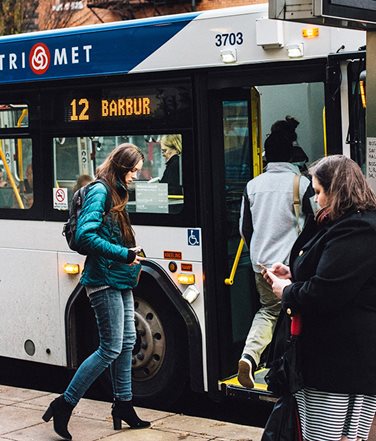 “Perhaps our biggest improvement is that we now have greater reliability in our real-time dispatch and rerouting. Digi TX64 tells us where the vehicle is every two seconds. We publish that data using the General Transit Feed Specification — a standard format for transit information — and that populates real-time maps on our website showing the locations of our buses. As you can imagine, that kind of convenience is very popular with our riders.”
“Perhaps our biggest improvement is that we now have greater reliability in our real-time dispatch and rerouting. Digi TX64 tells us where the vehicle is every two seconds. We publish that data using the General Transit Feed Specification — a standard format for transit information — and that populates real-time maps on our website showing the locations of our buses. As you can imagine, that kind of convenience is very popular with our riders.”
That same data also plays an instrumental role in the Division FX project, which uses Transit Signal Priority technology to direct more and larger buses (that hold 60% more riders) through the heavily trafficked Division Street corridor at higher speeds. “We’re using our vehicle location data to feed our TSP system. That’s giving our buses higher priority and faster trip times, creating a better experience and improving the value we offer to riders. Digi’s router has played a super-important role in that process.” The success of the project has led the Institute of Transportation Engineers to bestow TriMet, its partners, and other participating agencies with a 2023 Excellence in Transportation award.
“Digi’s technology has been instrumental to our success, of course,” said Yand. “But just as important has been the quality of the people who’ve worked with us to ensure we succeed. The sales support and Digi Professional Services team teams were instrumental in providing the back-end support needed for a smooth deployment, and they’ve been super responsive along the way — which has made all the difference.”
Connect with Digi
Seeking next-generation solutions and support? Here are some next steps: